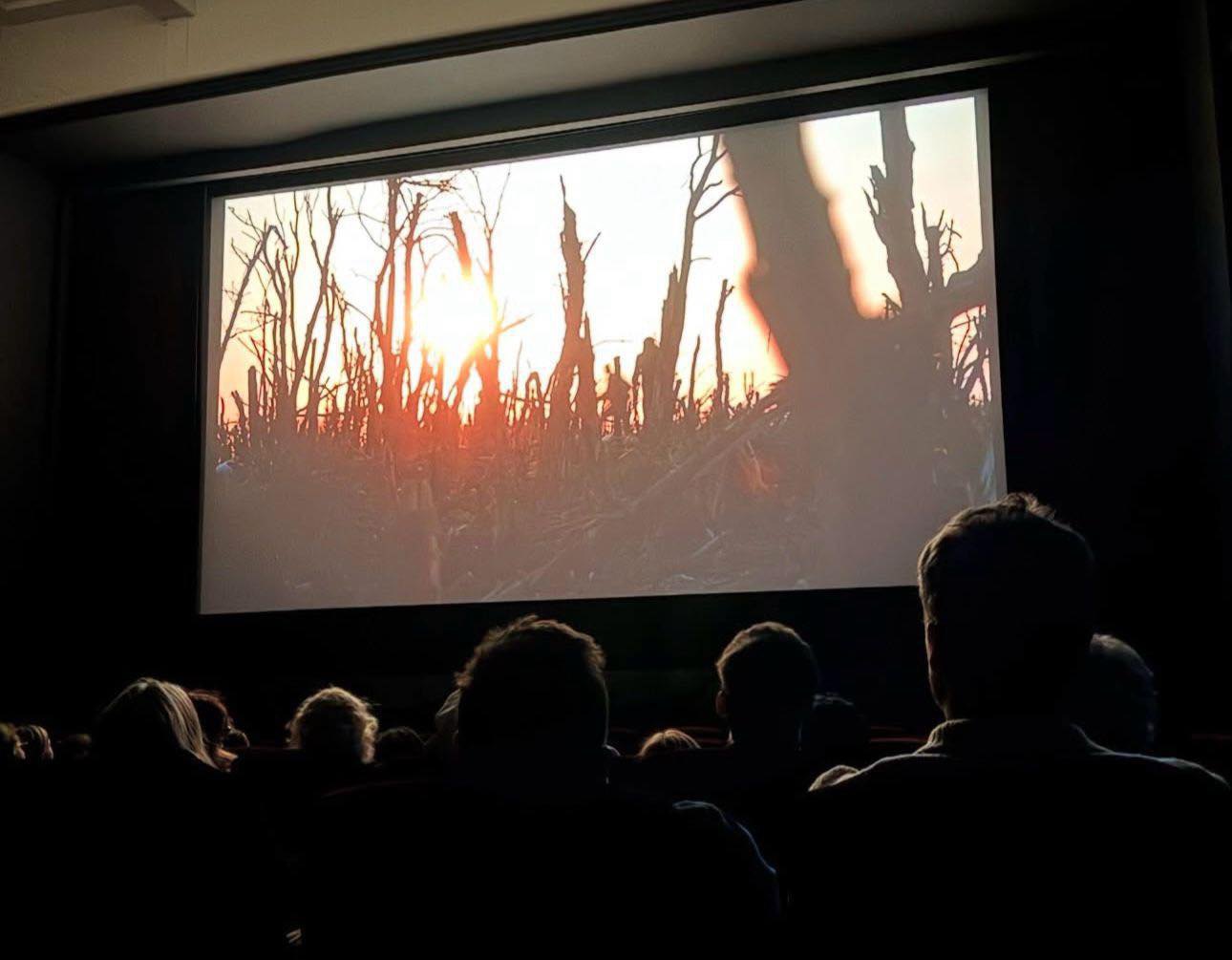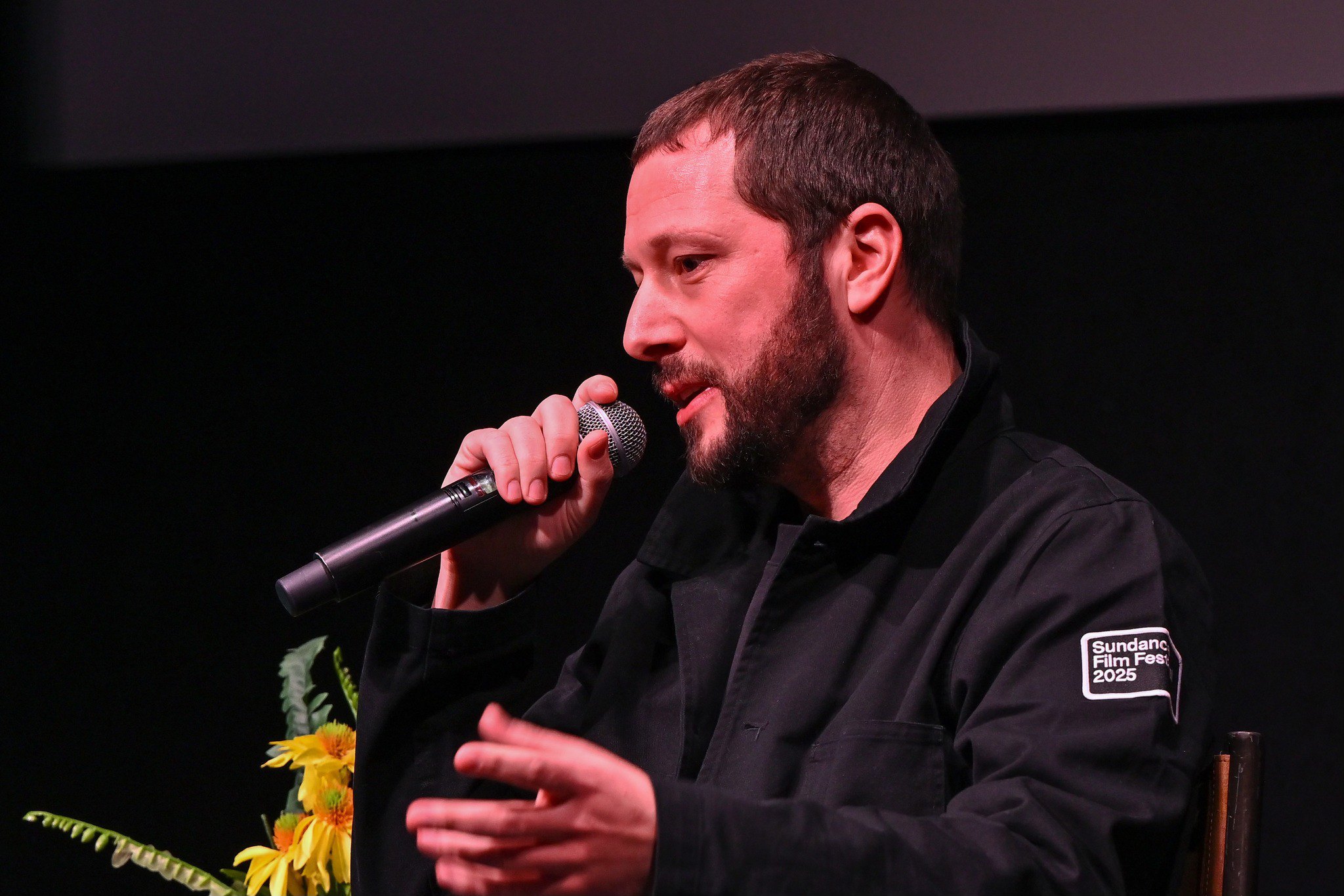
Mstyslav, you perform abroad a lot, communicate with the press and ordinary viewers. Does such cultural diplomacy influence public opinion in the world? Does it work somehow?
It's hard to say when you're in the moment and talking to people. The first reaction I hear is, ‘How can we help?’ So, such contacts work. On the other hand, all societies are in their own information bubbles. I have yet to see people who have completely changed their view of Russia's invasion of Ukraine just because they watched a film.
Cultural diplomacy is systematic, long-term work. The cultural diplomacy that Russia has been pursuing in Europe for the last 30 years is bearing fruit. Ukraine must work just as systematically. Little can be changed in two or three years. What is even more important than what the international audience sees and hears is the people with whom it communicates. I remember many years ago, when there was no war, Ukraine was known because of the football star Andriy Shevchenko. Now they know Zhadan, Usyk, Kurkov, Amelina, Jamala, and other prominent Ukrainians. In other words, Ukraine is known by its faces. And such people need to be helped, doors need to be opened for them, and they need to be supported for such diplomacy to work.
Do you often encounter misunderstanding or prejudice about Ukraine?
Unfortunately, often. This is because Russian propaganda is at work. Using enormous human and financial resources, they systematically conduct campaigns to change public opinion in countries where Ukrainian media or Ukrainian diplomacy cannot reach.
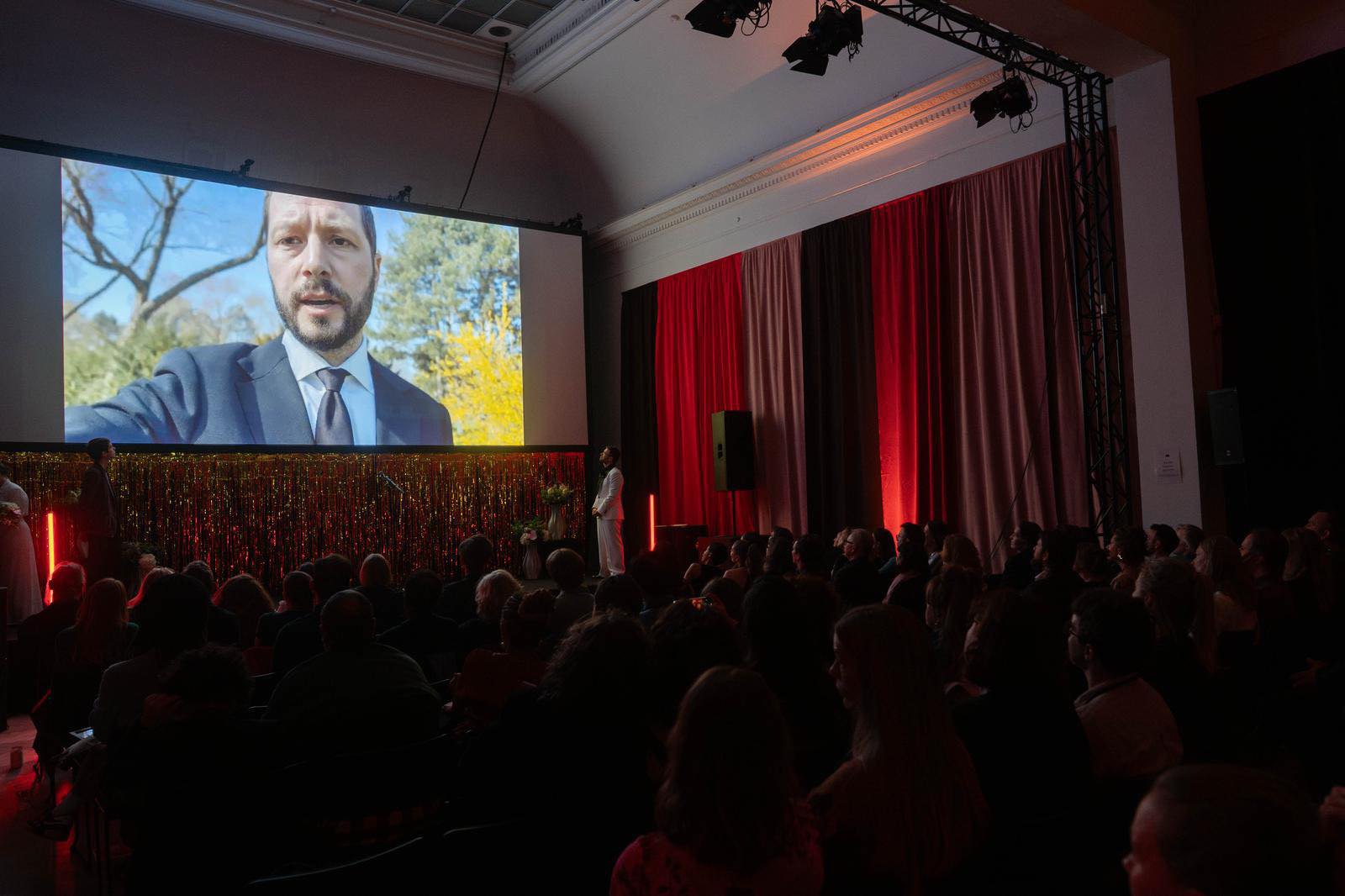
Can you recall the most absurd cases?
Usually, they simply repeat what Russia says through its media. For example, the claim that Ukraine does not want peace. Or that the struggle is pointless. That Ukraine's policy is part of America's imperialist policy. These are very powerful narratives that Russia deliberately uses in countries where there is fertile ground for this.
Where do you see your place in countering this?
I like to work. I look for such challenges. I look for opportunities to talk to people who still don't understand something about our situation. It is important to travel and speak where there is a lack of understanding of the Ukrainian perspective.
I think you need patience and strong nerves for this.
(Laughs) You need physical and mental resources for this, which I lack, because I have to make films. Talking is important, but you also have to do something.
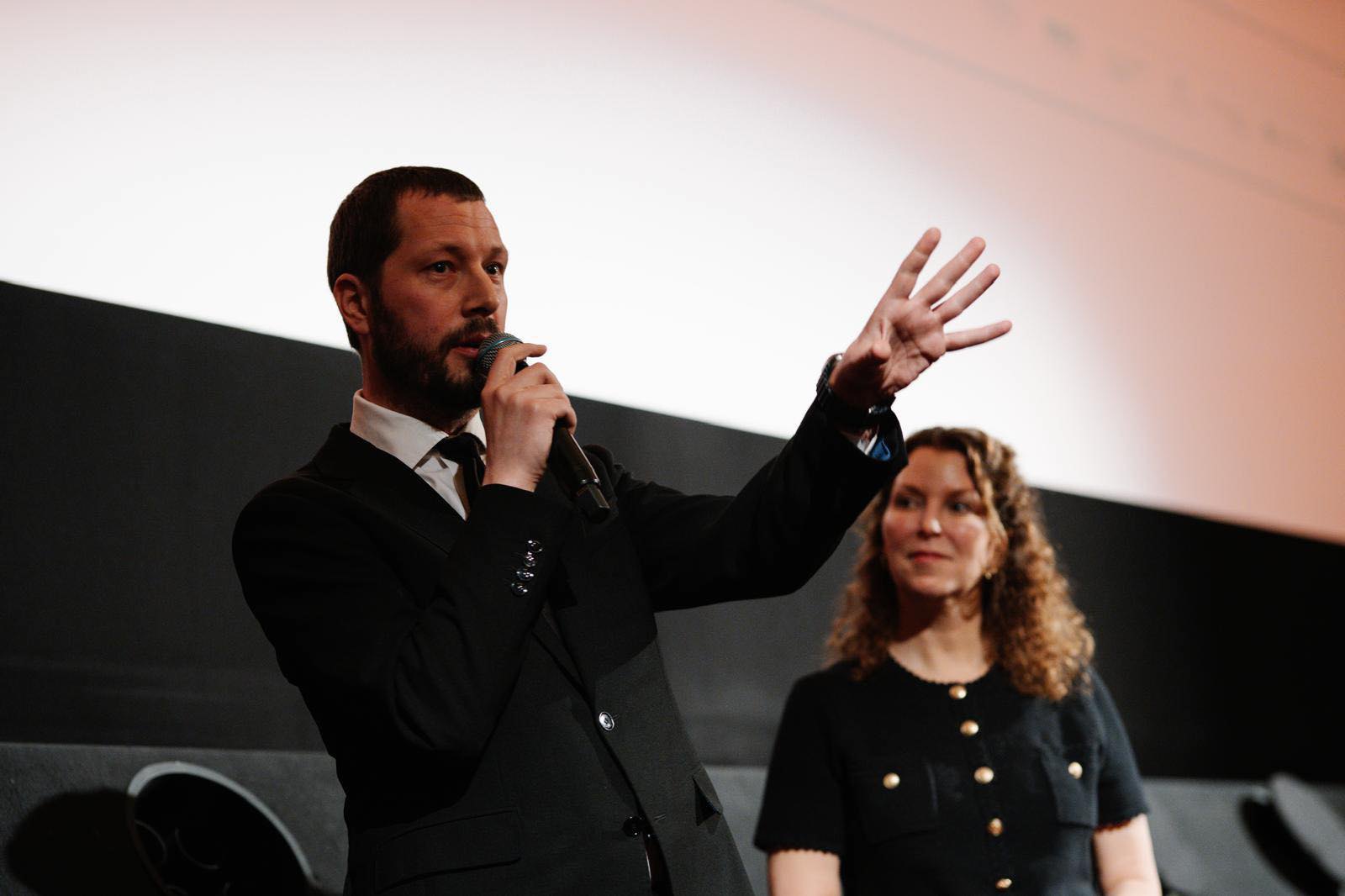
In your opinion, did the Oscar for 20 Days in Mariupol influence interest in Ukrainian cinema?
Of course, it has. Although, I must say that at some festivals I now see, on the contrary, fatigue from the amount of Ukrainian productions. I remember being invited to a panel discussion at the Sheffield DocFest in the United Kingdom called ‘Are there too many Ukrainian films being released now?’
And what did the parties agree on?
Absolutely everyone who took part in the discussion said no, there aren't too many, and the audience agreed. But the fact that such questions arise tells us something. It doesn't mean that fewer films should be released, and it doesn't mean that people won't watch them. This year, I saw at least 15 Ukrainian documentaries at festivals — good, worthy works.
This saturation means that people hear about Ukraine from all sides. And yes, they may think they've already seen and heard everything, but they'll still watch one or two films. That's the most important thing.
I also feel that over the last year, the selectors of the top ten festivals have started to include fewer Ukrainian films. Except for Sundance, where everything is fine...
Sundance is a fantastic festival, my favourite and, in my opinion, the best in the world for documentaries. But even they tried to ‘maintain balance’ this year. They included 2000 Meters to Andriivka in the programme, and at the same time a film about good Russians, Mr. Nobody Against Putin. But I understand the reasons for this programming: they are trying to avoid accusations of biased film evaluation, because film is a universal medium.
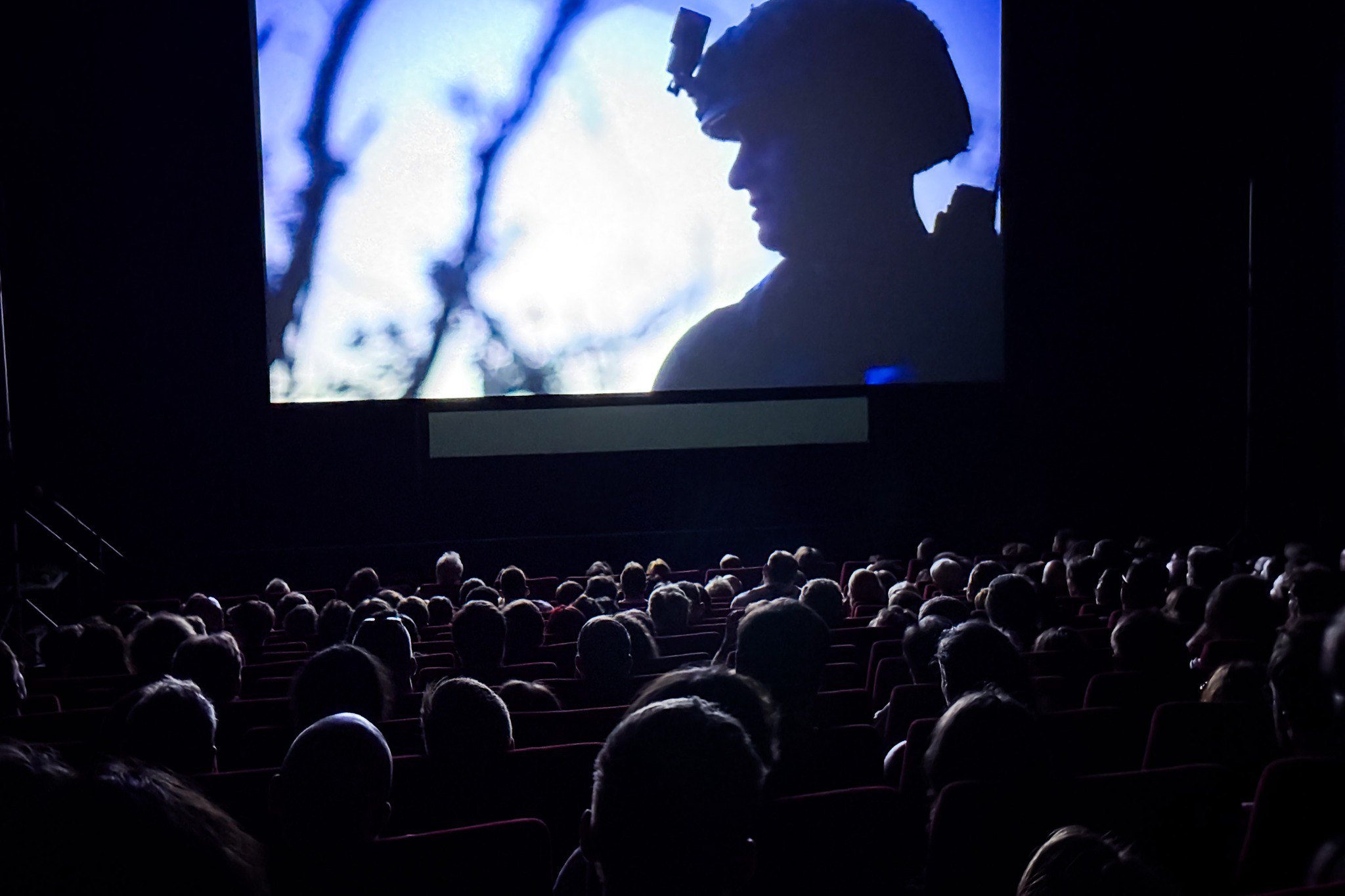
By the way, you have had a certain influence on the international film industry, as you now have the opportunity to vote for the Oscars at the American Film Academy. Have you learned anything new?
Let me answer that way. Now I understand much better the system by which the Documentary Branch works — these are documentary filmmakers who vote in their own category. And in general, how voting works and how Oscar companies work around the world.
Obviously useful knowledge.
It helps to see trends, to see what film experts are paying attention to. Yes, this knowledge is important, but it doesn't come suddenly at some point. For example, during the premiere campaign, which lasts throughout the year, both for 20 Days in Mariupol and for 2000 Meters, I constantly meet with people who are academics and who vote. And I already have an understanding of how this process works, what they pay attention to, what is important to them.
2000 Meters will soon be shown in Kyiv at the Soundtrack: Ukraine festival. Music plays an important role in your films, and I think composer Sam Slater can be called a full-fledged co-author of the film. How did you meet him?
We have mutual friends who are producers, plus I knew his music from Joker and Chernobyl long before we met in person. I was looking for a composer who could create music from the sounds of the battlefield. After all, we don't hear an orchestra or a piano on the front lines. We hear the radio, we hear bullets, explosions, drones. I remember we met and talked for a long time. We discussed the genre, the concept of the film, and the concept of the musical accompaniment, which would take on the role of sound design. We limited ourselves and decided to be as close to reality as possible. Plus, I was looking for a composer who was used to writing music for feature films, because that was the quality we were striving for — closer to classic war films such as Apocalypse Now, All Quiet on the Western Front, and so on.
I have a rule: work with people who can become your friends, with whom you share common views and interests, especially when choosing the head of an entire department. Sam became that person, and it was an honour for me to work with him. He did a tremendous job. Suffice it to say that, especially for the film, he and music producer Jacob Vasak invented a completely new instrument, the ‘kobophone,’ which did not exist before.
How do you actually work with him?
Part of the work is done online. The composer receives an edited version of the film and begins to work, searching for so-called signature sounds, themes, where and how the music will sound.
We also work together in the studio: we go through the scenes of the film, and he asks what we feel at one moment or another. We discuss the sounds, the presence or absence of melody, and so on. For example, we worked on a funeral scene that transitions into a scene we called The Funeral of the Land, where a drone flies over the devastated land. Sam asked me, ‘Mstyslav, how did you feel when you were filming this?’ I said, ‘I felt anger.’ I didn't cry at this funeral. At this funeral, I was furious. And in dissonance. And that's how we moved forward.
We allowed harmony to appear only in the last scene, called Mystery, where it is possible to release fatigue, despair, and mourning for the dead — with the help of his wife, Hildur Guðnadóttir, also a composer. She played the part on the cello, and everything came together in harmony.
I'll say this specifically for the readers: she, like Sam, also wrote music for Chernobyl.
That's right, they worked together.
In general, how do you decide whether music is needed in an episode or not?
I leave that choice to Sam. When he decides not to use music, I agree with him.
Can you give an example?
In 2000 Meters to Andriivka, he sees that when we are walking through the forest, returning after raising the flag in the village, just before the scene where Hildur plays the cello, he said, ‘We'd better give the viewer time to think, to be alone with their thoughts, to be in this silence.’
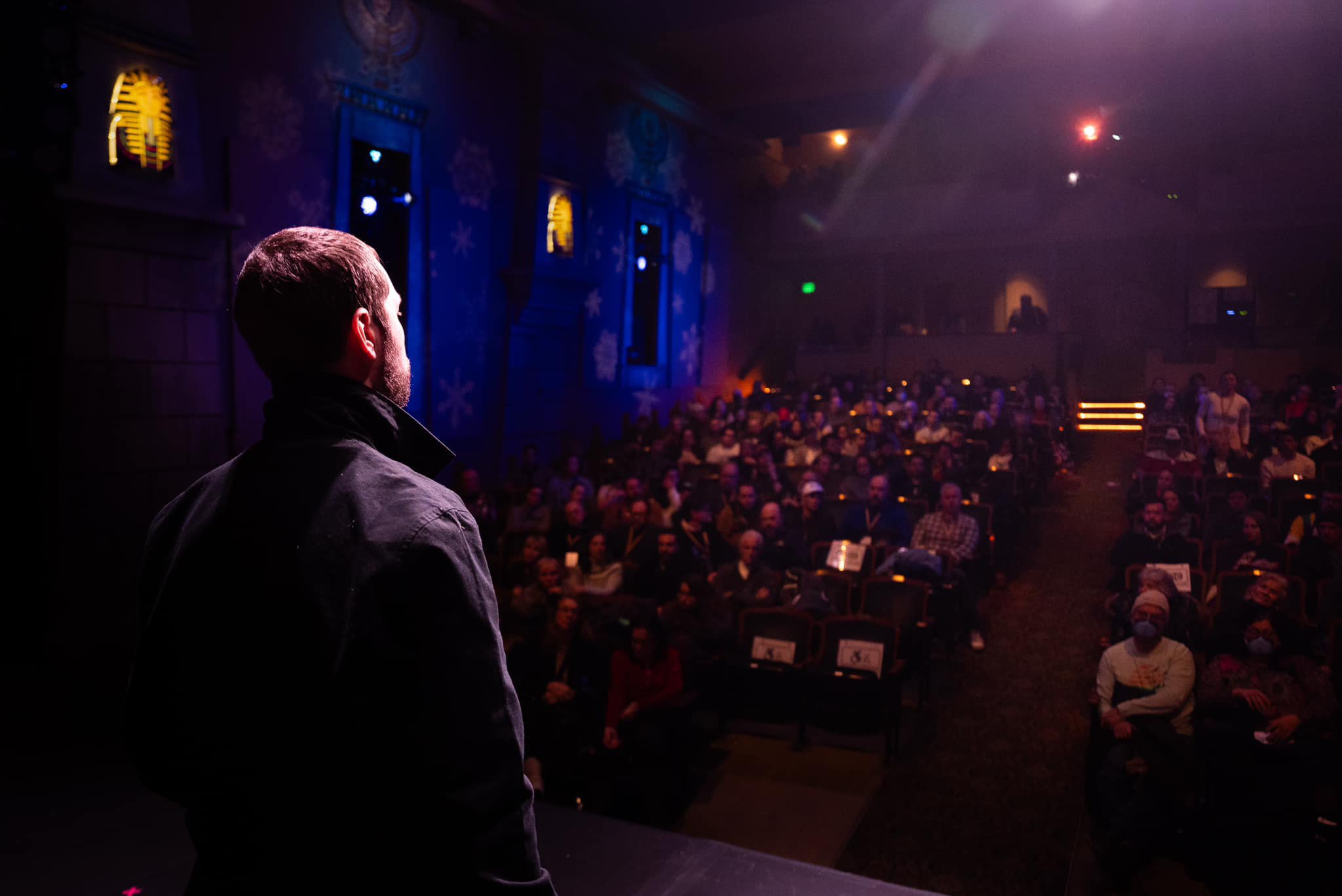
I remember that Danylo Lider (Ukrainian set designer and teacher – Ed.), may he rest in peace, once remarked that in a typical film, the hero enters the forest and suddenly music begins to play to accompany his experiences – so Danylo Danylovych asked sarcastically: where is the orchestra sitting in the forest? What I'm getting at is: is music necessary in an ideal film?
We can talk about music, especially experimental music, which sets the mood or conveys the feelings of the characters. In 2000 Meters, as I said, we don't hear an orchestra, but rather the transformed sounds of the battlefield – that's why Sam is the composer of the film. Plus, music can be different. In 2000 Meters to Andriivka, the fundamental position is that there is no harmony until the very end. There is only discomfort, only tension.
And cinema is not just a series of images. It is a medium that works with sound, literature and visual images. Therefore, I would not say that the ideal film should be without music. There are films that do not need music if their theme, tempo, or internal dialogue dictates it. All creative decisions must correspond to the theme, idea, and meaning of the film.
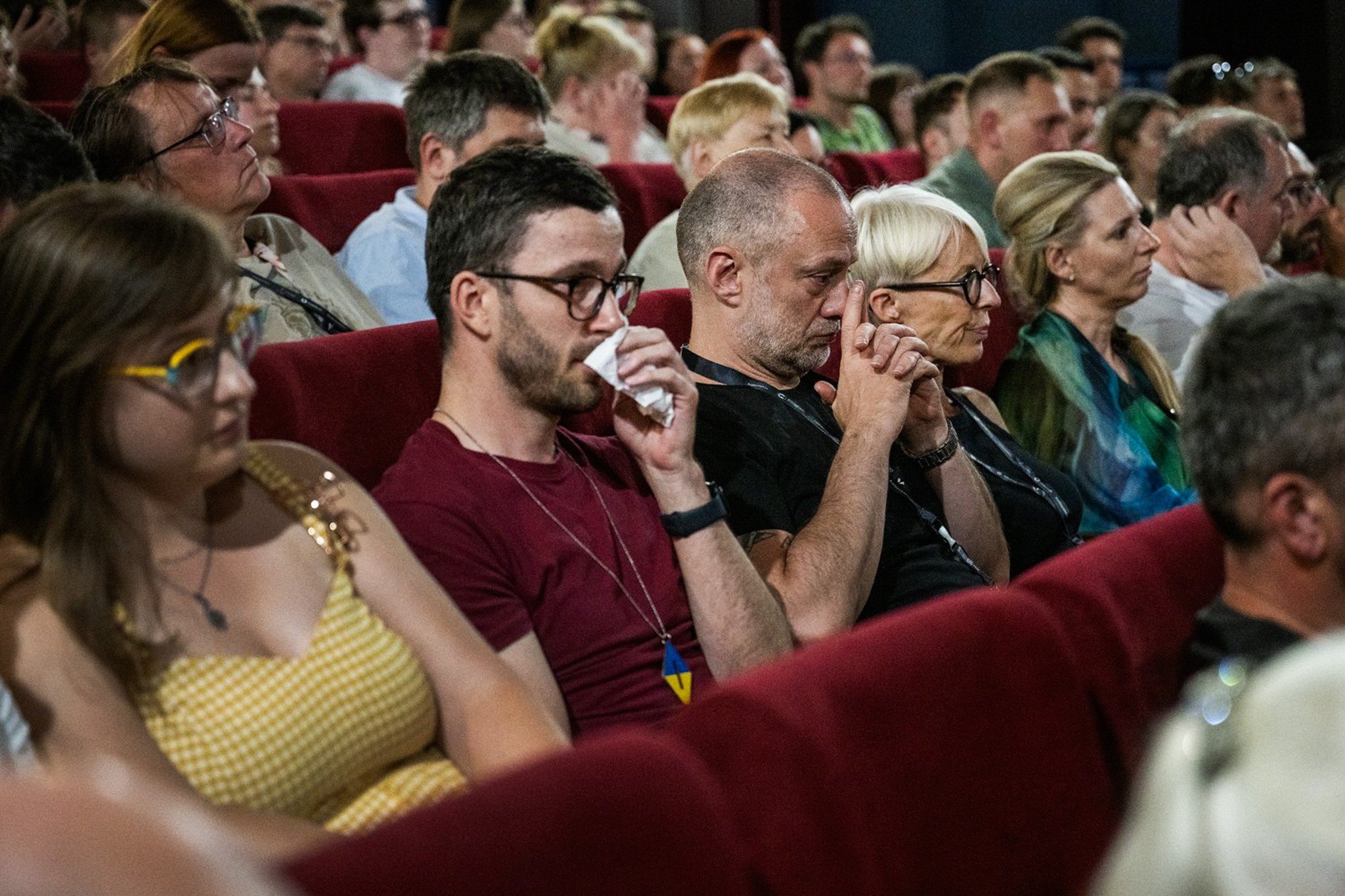
Towards the end, we cannot avoid domestic issues. In your opinion, are the State Film Agency and similar structures, which are supposed to support cinema from the state, fulfilling their duties?
I cannot evaluate the work of our State Film Agency because I do not cooperate with it. But I and many Ukrainian directors don't need it, because the fact that the State Film Agency is linked to the country's politics can harm the films that festivals include in their programmes. If the selectors see that part of the film's budget came from state funds, it can prevent the film from being shown at festivals. Because it will be considered biased.
But now there is an acute military conflict, and society has become radicalised. I think that with time we will look back and understand what was effective, what worked, what didn't, and we will be able to learn from our mistakes. In any case, I am glad that during such a terrible war, the State Film Agency still exists and is working.
You mentioned the war and the changes it brings. How much has your experience in the war changed you?
The war has changed us all. It has changed me too, and not for the better. I cannot assess how much it has destroyed us, but as individuals we are all crippled, we are all traumatised, and we will be healing and living with it for a long, long time. But as a society, we have grown, and I am proud of that. That is, individually we are barely moving forward, but as a society we have become stronger.
Yes, I think I agree with you. Well, the last question is purely formal, but important. What film are you working on now? Don't you know yet?
I know perfectly well. I am continuing to shoot it, and it is not just one film. The only thing I can say is that I really hope it will be a film about the end of the war.
